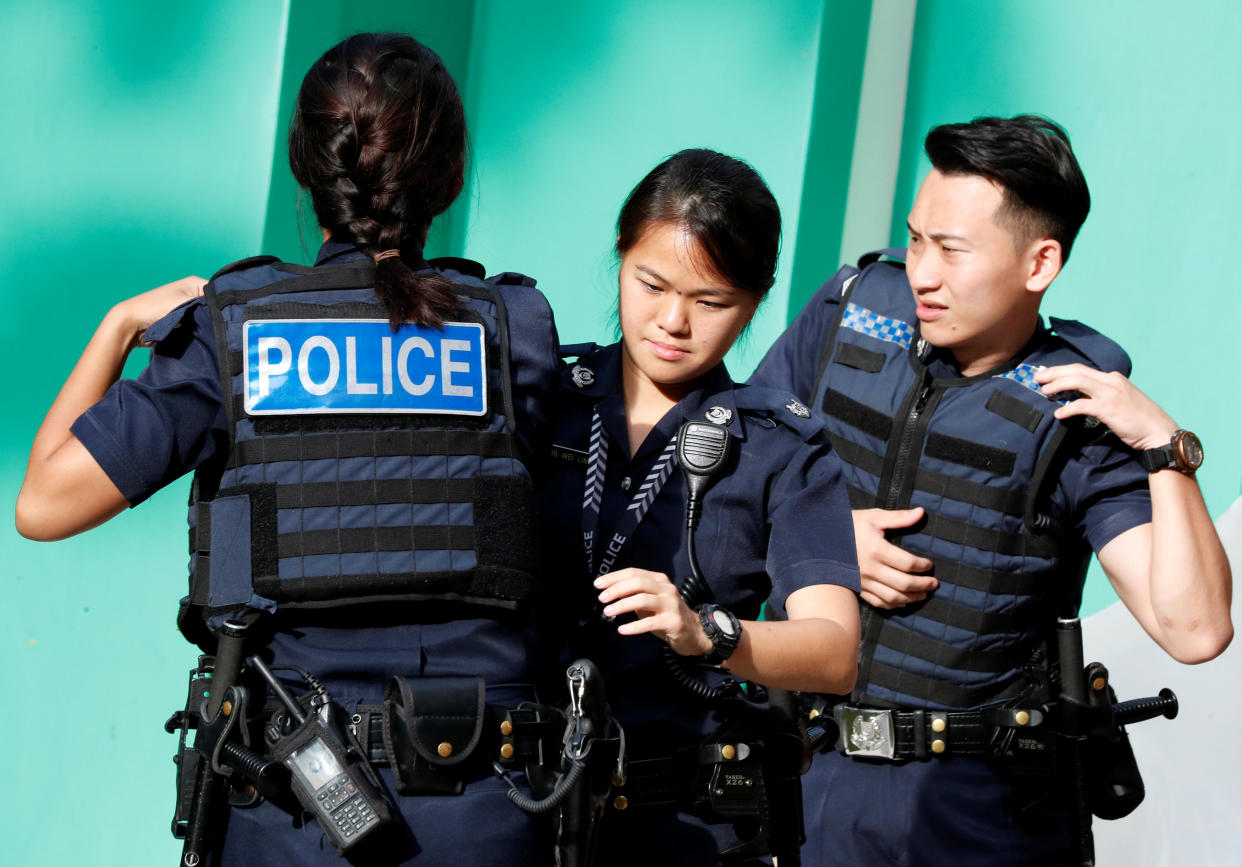Peaceful protests not target of new security law: Josephine Teo

Peaceful protests are not the target of a new security law as it would only be invoked when dealing with large-scale public disorder incidents, said Second Home Affairs Minister Josephine Teo in Parliament on Wednesday (21 March).
Teo was replying to supplementary questions from several Members of Parliament during the second reading of the Public Order and Safety (Special Powers) Act (POSSPA) Bill, which is an evolved version of the 1958 Public Order (Preservation) Act (POPA) Bill.
Her comments came before Parliament passed POSSPA which empowers security authorities to ban photograph or video-taking of an incident or the dissemination of information about security operations in such a situation.
POSSPA would be invoked only when peaceful protests could escalate into a serious security situation, said Teo, who dismissed claims that POSSPA could be used to suppress protestors.
“We will only invoke POSSPA if the situation deteriorates and the threat of large scale public disorder or violence becomes imminent. If a protest is really peaceful, there should be no concern whatsoever about falling within the third limb of large scale public disorder,” she said.
Several Members of Parliament, such as nominated MP Kok Heng Leun and Nee Soon GRC MP Louis Ng, asked why a sit-down demonstration is listed among the illustrations included in the POSSPA Bill.
The illustration states, “A sit‑down demonstration for a cause attracts a large group of sympathisers who voluntarily join the sit‑in. For over a week, the group grows and the demonstrators start to occupy the publicly accessible paths and other open spaces in the central business district. Their presence starts to impede the flow of vehicular and pedestrian traffic and interfere with normal trade or business activities in the area.”
Teo replied that the police would have to make a judgement call whether existing powers, such as the current Public Orders Act, were sufficient to control a situation.
She said, “There must be significant disruption to ordinary Singaporeans trying to go about their daily business, people…are agitated, the tension is rising. If it is not diffused, things could quickly turn chaotic.”
“In such a situation, it is more likely that the police will be asked, ‘Why are you allowing the chaos to unfold? Are you not worried something worse will happen? Can’t you do something to prevent an escalation?'”
On the other hand, she noted that the police might also be accused of over-reacting if they were to invoke POSSPA.
One example of a protest that would not warrant POSSPA was the recent student demonstrations in Columbus, Ohio, during which some 200 students sat in silence to protest against gun violence, said Teo.
She noted that in Singapore, POPA had only been used once, after the 2013 Little India riot. “Even then it was tightly scoped to control the consumption of alcohol to calm the situation and prevent further violence. Police did not use any other power in POPA even though they could,” she said.
Aljunied GRC MP Sylvia Lim asked about the communication stop order, which would prohibit filming and transmitting information about an incident while it is occurring.
Lim pointed out that videos or photos taken during the incident could be used as evidence of any police abuse that could occur. Without gathering such evidence, it would be more difficult for a complainant to prove his case, she added.
In reply, Teo said that a complainant could still lodge a complaint with or without footage of the incident.
Teo added that the police did not rely solely on videos when investigating a complaint. They could conduct interviews and take action against any errant officer should the complaint be substantiated, she said.
Related stories:
Communications stop order for serious incidents ‘not an information blackout’: Josephine Teo
Singapore proposes measure to bar communications from terror attack sites



